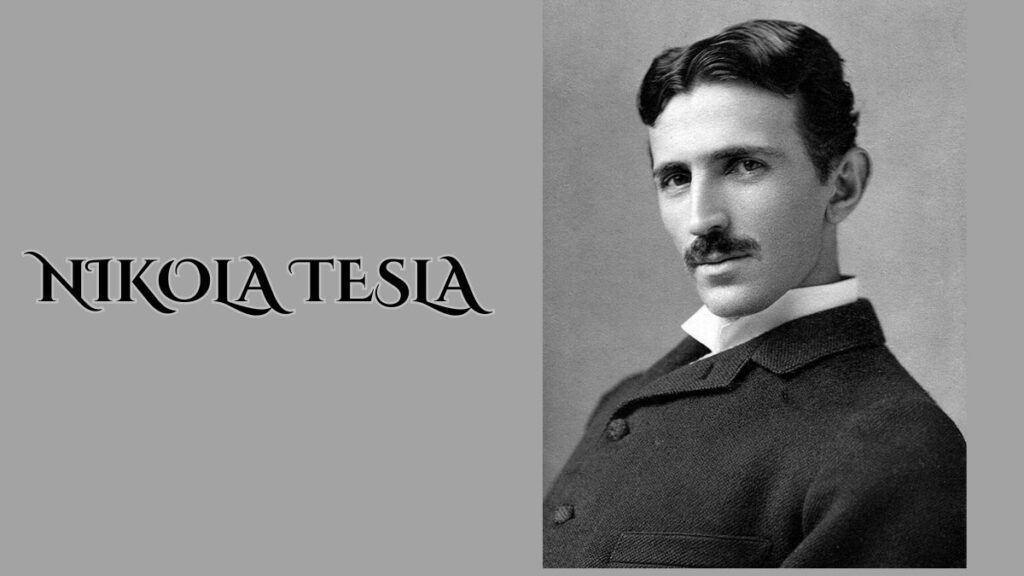Nikola Tesla, one of the most brilliant inventors and visionaries in human history, is often associated with science, electricity, and technology. Yet, there are whispers and discussions on the internet and among spiritual communities suggesting a more metaphysical side to Tesla. Some even ask: Was Tesla a Buddhist?
While there is no direct evidence that Tesla formally practiced Buddhism, there are several intriguing overlaps between his beliefs and Buddhist philosophy. In this article, we’ll explore Tesla’s life, spiritual inclinations, personal writings, and connections to Eastern philosophy to determine whether there is any truth to this idea.
Who Was Nikola Tesla?
A Brief Biography
Nikola Tesla (1856–1943) was a Serbian-American inventor, engineer, and futurist best known for developing alternating current (AC) electrical systems. Born in Smiljan, in the Austrian Empire (modern-day Croatia), Tesla was a brilliant mind who held over 300 patents. He contributed significantly to fields such as radio, wireless communication, electromagnetism, and even early ideas of robotics.
Tesla’s Personality and Lifestyle
Tesla was not a typical inventor. He was known for his eccentric habits, celibate lifestyle, photographic memory, and incredible work ethic. He often slept only a few hours a night, claiming that his mind was constantly filled with ideas.
Tesla and Spirituality: Was He a Mystic?
Tesla’s Fascination with the Universe
Tesla once famously said:
“My brain is only a receiver, in the Universe there is a core from which we obtain knowledge, strength and inspiration.”
This quote reveals a deeply spiritual perspective. While Tesla was a man of science, he acknowledged forces and dimensions beyond conventional understanding. This openness to unseen energy aligns closely with Eastern philosophies, including Buddhism.
Belief in Prana or Life Force
In some of Tesla’s writings and interviews, he speaks about an energy that pervades everything — a cosmic force. This concept is reminiscent of prana in Hinduism and Qi in Taoism, both of which also influence Buddhist thought.
Tesla’s Ideological Connection with Buddhism
1. Interconnectedness of All Life
Buddhism teaches that all life is interconnected and that separation is an illusion. Tesla echoed this sentiment in his understanding of energy and vibration. He believed that everything in the universe was deeply connected through frequency, resonance, and vibration.
He once stated:
“If you want to find the secrets of the universe, think in terms of energy, frequency, and vibration.”
This is not a scientific observation alone — it carries spiritual undertones that align with Buddhist cosmology.
2. Detachment and Simplicity
Tesla lived a life of minimalism and detachment, core principles in Buddhism. He never married, lived in modest accommodations, and refrained from indulgences. He even avoided social functions and relationships to stay focused on his work.
In Buddhism, detachment is not about isolation but freedom from craving and desire. Tesla seemed to intuitively follow this principle.
3. Rejection of Materialism
Tesla’s focus was never on wealth. Despite creating technologies worth billions, he died poor. He rejected the materialistic pursuits of other inventors like Edison. Tesla’s priorities were knowledge, discovery, and service to humanity — values held dear in Buddhist teachings.
Did Tesla Ever Practice Buddhism?
Lack of Historical Evidence
There is no direct documentation of Tesla practicing Buddhism, meditating, or studying Buddhist scriptures. He was raised in a Serbian Orthodox Christian family, and his father was a priest. Though he eventually distanced himself from organized religion, he retained a deep spiritual outlook.
Eastern Influences
Tesla was well-read and had global intellectual interests. It is plausible that he encountered Buddhist ideas through books, Eastern philosophy, or even dialogues with other intellectuals. He admired Swami Vivekananda, a Hindu monk who played a significant role in introducing Eastern spirituality to the West. Vivekananda and Tesla reportedly met in the late 1890s and discussed the idea of energy and matter — particularly the concept of Akasha (ether) and Prana, key elements in Vedanta, which also influence Buddhist metaphysics.
Similarities Between Tesla’s Views and Buddhist Philosophy
| Tesla’s Beliefs | Buddhist Parallels |
|---|---|
| Energy is everything | Everything is impermanent and interconnected |
| Detachment from materialism | Non-attachment is a core principle |
| Service to humanity | Compassion and service are essential |
| Rejection of ego | Ego is the source of suffering |
| Vibrational universe | Everything arises from dependent origination |
Tesla’s Celibacy and the Spiritual Path
Tesla claimed that his celibacy helped sharpen his intellect and allowed him to focus entirely on his work. In Buddhist monastic traditions, celibacy is practiced to conserve spiritual energy and minimize distractions. Whether intentionally or intuitively, Tesla’s lifestyle mirrored the discipline of a monk.
He once said:
“I do not think you can name many great inventions that have been made by married men.”
While this statement may sound controversial, it shows Tesla’s belief in sacrifice and discipline — attributes highly regarded in spiritual traditions like Buddhism.
If you want to read more, visit our blog page. We have more topics!
Was Tesla a Reincarnation Believer?
Buddhism places great importance on reincarnation and karma. While Tesla never publicly affirmed belief in reincarnation, his views on the cyclical nature of life and energy suggest a philosophical openness to such ideas. He believed that energy never truly disappears; it merely transforms — a concept strikingly similar to samsara, the cycle of birth, death, and rebirth.
What Can We Learn from Tesla’s Spiritual Leanings?
Whether Tesla was a Buddhist or not, his life offers profound lessons:
- Science and spirituality need not be at odds. Tesla is an example of someone who embraced both.
- Simplicity and detachment can lead to greater creativity and purpose.
- Compassion and service should be the foundation of any invention or progress.
- Question everything — even the nature of reality.
Tesla’s legacy is more than electrical systems. It’s a call to look within, understand the universe’s hidden frequencies, and live in harmony with nature and humanity.
Conclusion: Was Tesla a Buddhist?
In the strictest sense, Nikola Tesla was not a practicing Buddhist. He was not initiated into Buddhism, nor did he identify as such. However, his philosophies, lifestyle, and beliefs shared striking parallels with Buddhist teachings. He lived as a modern mystic — blending logic with intuition, science with spirituality, and detachment with compassion.
So, was Tesla a Buddhist? Maybe not by title — but perhaps by spirit.
Was this helpful? If so, please keep browsing our site to find more useful information!
FAQs
1. Did Nikola Tesla follow any religion?
Tesla was raised Serbian Orthodox but distanced himself from organized religion in adulthood. He retained spiritual beliefs, often speaking about a universal force or energy that guides the universe.
2. Did Tesla ever meet any Buddhist monks or teachers?
There’s no recorded instance of Tesla meeting Buddhist monks, but he did meet Swami Vivekananda, a Hindu monk, and discussed Eastern spiritual concepts with him.
3. Was Tesla spiritual or purely scientific?
Tesla was both. While he is remembered for his scientific brilliance, his quotes and lifestyle suggest a deep spiritual awareness. He believed in unseen energies and the power of intuition.
4. Did Tesla meditate like Buddhists?
There is no direct record of Tesla meditating, but he did spend long hours in solitude and deep contemplation, which served a similar purpose — focusing the mind and accessing higher states of creativity.
5. Is there any book that explores Tesla’s spiritual side?
Yes. Books like “The Secret of Tesla” and “The Lost Journals of Nikola Tesla” touch on the mysticism surrounding him, though some contain speculative elements. Biographies like “Tesla: Man Out of Time” by Margaret Cheney also touch on his metaphysical beliefs.
Want to hear more tips? Please look at our page for more informative and helpful blog posts.





